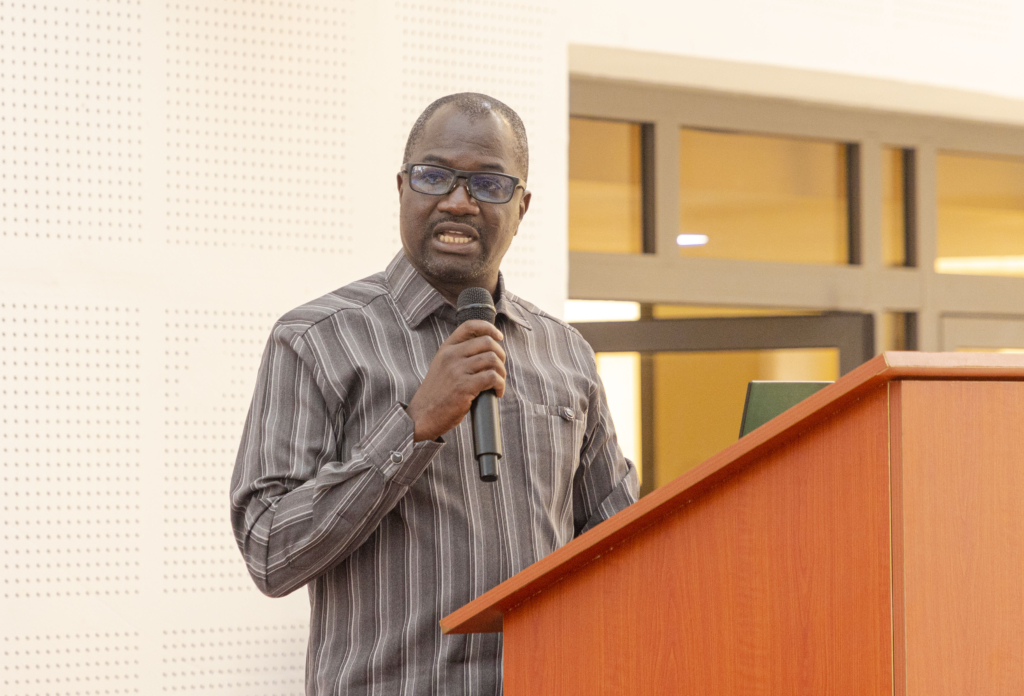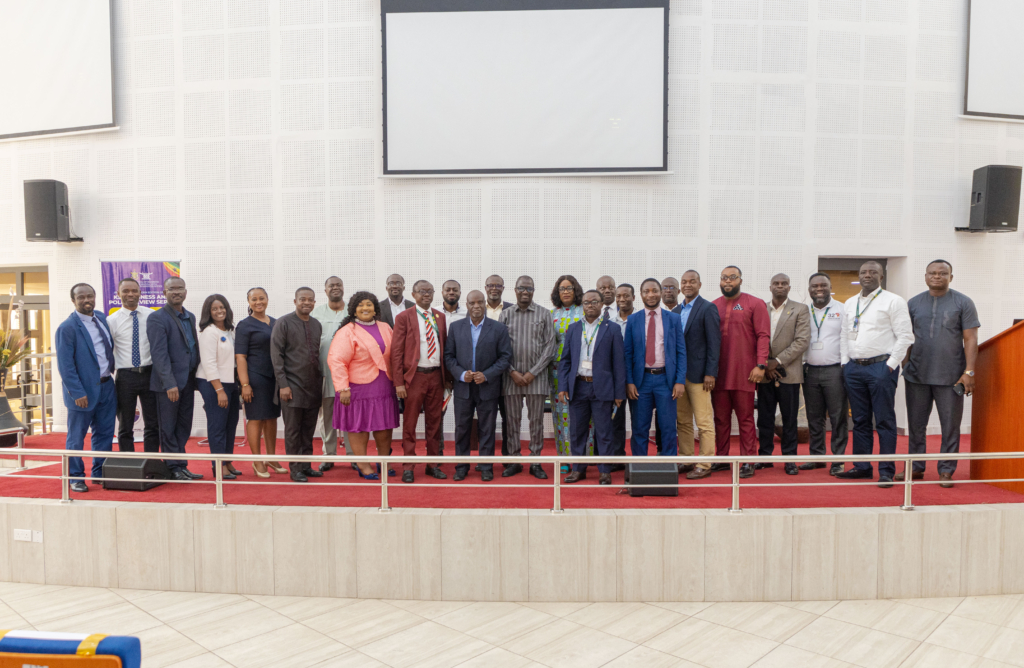The Dean of the Kwame Nkrumah University of Science and Technology School of Business, Prof Ahmed Agyapong, has identified key strategies for Ghana’s industrial transformation.
He believes prioritising innovation and technology adoption, infrastructural development and human capital development are crucial in this direction.
He again mentioned environmental sustainable practices, policy and regulatory framework and public-private partnership as areas worth considering.
“Embracing cutting-edge technologies, enforcing technology of innovation is essential to enhancing productivity and efficiency in our industries. We must invest in research and development and current entrepreneurship, and support the digital transformation of business.
“To sustain industrial growth, we need a skilled and adaptable workforce that requires continuous investment in education and training, aligning academic curriculum, web industry, industry needs, and promoting lifelong learning. Trade infrastructure development and robust infrastructure is the backbone of industrialisation. We must prioritise the development of transport networks, energy supply, and digital infrastructure to facilitate smooth and efficient industrial operations.
“Effective and supportive policies are crucial for industrial transformation. We must create an enabling environment that encourages investment, fosters competition, and protects the interests of all stakeholders,”he explained.

The series which was under the theme: “The industrial transformation of Ghana; Strategic priorities” delved into insights and experiences aimed at Ghana’s industrial transformation.
It featured personalities such as Moses Asaga, a former deputy finance minister, Austin Gamey, CEO of Gamey and Gamey Group, and Seth Twum Akwaboah, CEO of Association of Ghana Industries.
Others are Prof. (Sr) Eugenia Amporfu of the KNUST Department of Economics and Marketing and corporate strategist at KNUST, Dr Samuel Yaw Akomea.

Mr Austin Gamey, who joined via online argued for consensus building to harmonise the country’s human resource and technology.
“We add value consistently to the human resource then we apply that knowledge to ensuring that technology works,” he said.
Mr Moses Asaga on the other hand advocated for a vibrant macroeconomic environment to enable the private sector to thrive.
As more local industries aim to make gains both nationally and abroad, Prof. (Sr) Eugenia Amporfu also called for quality product output. Seth Twum Akwaboah however called for government support in the provision of funds and patenting which he said were crucial.
Latest Stories
-
500 small businesses to benefit from Republic Bank’s Caribbean Export programme
17 minutes -
5 dead as Islamic protesters clash with Nigerian military, police
18 minutes -
Black Kulcha Music releases ‘Love & Reasons Riddim’ album
34 minutes -
Thank you for the kind well wishes – Vice President on ill health
35 minutes -
McDan begins search for partners to establish industrial salt hub
42 minutes -
T-bills auction: Government misses target for second time; interest rates fall marginally
55 minutes -
President Mahama headlines AETC 2025 in Accra
2 hours -
Delivery of quality education: rehabilitation of classroom blocks enhances learning environment in North Tongu
3 hours -
Let Ghanaians know what happened to the Vice President on Friday – NPP
3 hours -
Tarkwa TNA Stadium to host MTN FA Cup semis
3 hours -
‘The aim of every coach is to win trophies’ – Prosper Ogum
3 hours -
Gold discovered in seven districts of Upper East Region – Minister
4 hours -
Ahafo Regional Minister raises alarm over rising drug abuse among youth
4 hours -
Tomato paste research: Who will give the consumer some clarity?
4 hours -
Fidelity Bank launches initiative to empower journalists in financial reporting
4 hours

